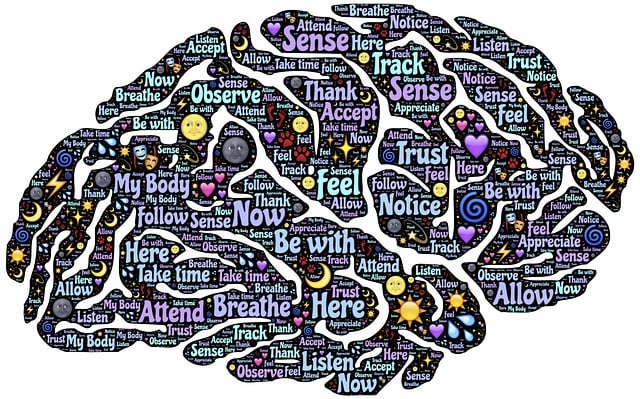Understanding Mental Health Data through modern digital tools offers crucial insights for improving Boulder Cancer Issues Therapy. This data, prepared with meticulous cleaning and normalized formats, guides researchers in tailoring interventions like trauma support services and personalized treatment plans. Advanced techniques such as machine learning and natural language processing uncover complex connections within large datasets, including patient narratives about cancer issues. Integrating mindfulness and compassion cultivation practices enhances data interpretation quality, leading to tailored care that improves service quality, patient understanding, and outcomes. Interpreting data is vital for developing actionable strategies, such as targeted therapy sessions and support groups, resulting in enhanced patient coping mechanisms and improved quality of life during and after treatment.
Mental health data analysis is a powerful tool in understanding and addressing societal challenges, particularly in the realm of Boulder Cancer Issues Therapy. This article delves into the critical process of collecting, preparing, and interpreting mental health data to uncover insights and patterns. We explore advanced analysis techniques that enable professionals to make informed decisions, ultimately translating data into actionable strategies for effective therapy and improved patient outcomes in Boulder cancer care.
- Understanding Mental Health Data: Collection and Preparation
- Advanced Analysis Techniques for Insights and Patterns
- Interpreting Results: Translating Data into Actionable Strategies for Boulder Cancer Issues Therapy
Understanding Mental Health Data: Collection and Preparation

Understanding Mental Health Data is a multifaceted process that begins with effective collection and preparation. In today’s digital age, various tools and platforms capture vast amounts of data related to mental health, from electronic health records to mobile applications offering burnout prevention strategies for healthcare providers. This data can provide valuable insights into the prevalence of conditions like trauma support services and even Boulder cancer issues therapy, allowing researchers and clinicians to tailor interventions more effectively.
The preparation phase involves meticulous cleaning and normalization of data to ensure accuracy and consistency. This process includes handling missing values, identifying and correcting errors, and transforming data formats for seamless analysis. Incorporating mindfulness meditation practices during this stage can enhance focus and reduce burnout among data analysts, fostering a healthier work environment that indirectly contributes to the quality of mental health data interpretation.
Advanced Analysis Techniques for Insights and Patterns

In the realm of mental health data analysis, advanced techniques are crucial for uncovering insights and identifying patterns that can significantly impact treatment approaches. These sophisticated methods go beyond basic statistical analysis to explore complex relationships within vast datasets. By employing machine learning algorithms and natural language processing, researchers can delve into textual data from therapy sessions or survey responses, extracting themes and sentiments that might otherwise remain hidden. For instance, analyzing patient narratives around Boulder cancer issues and therapy can reveal unique challenges and coping mechanisms, providing valuable context for personalized treatment plans.
Integrating Compassion Cultivation Practices and Stress Management Workshops Organization strategies within these analyses offers a holistic perspective on mental wellness. By identifying common threads in patient experiences, healthcare professionals can adapt their approaches, ensuring more effective care. This nuanced understanding of mental health data not only enhances the quality of services but also fosters an environment where patients feel heard and supported, ultimately contributing to better outcomes.
Interpreting Results: Translating Data into Actionable Strategies for Boulder Cancer Issues Therapy

Interpreting data is a crucial step in transforming raw numbers into actionable strategies for Boulder Cancer Issues Therapy. By delving into the insights gained from mental health data analysis, professionals can identify trends and patterns that reveal specific challenges faced by individuals navigating cancer. This process enables the development of tailored interventions, such as targeted therapy sessions or support groups, to address these unique needs.
For instance, analyzing emotional well-being promotion techniques through data can highlight effective coping mechanisms that build inner strength in patients. Armed with this knowledge, mental health professionals can incorporate these strategies into risk management planning, ensuring a more holistic approach to cancer care. This translates to improved patient outcomes and enhanced overall quality of life during and after treatment.
Mental health data analysis is a powerful tool in understanding and addressing Boulder Cancer Issues Therapy. By employing advanced techniques to interpret complex datasets, we can uncover meaningful patterns and insights. This knowledge enables healthcare professionals to develop targeted strategies, enhancing the effectiveness of therapy and improving patient outcomes. Through rigorous data collection, preparation, and interpretation, we move closer to revolutionizing mental health care, ensuring a brighter future for those navigating Boulder Cancer Issues.














